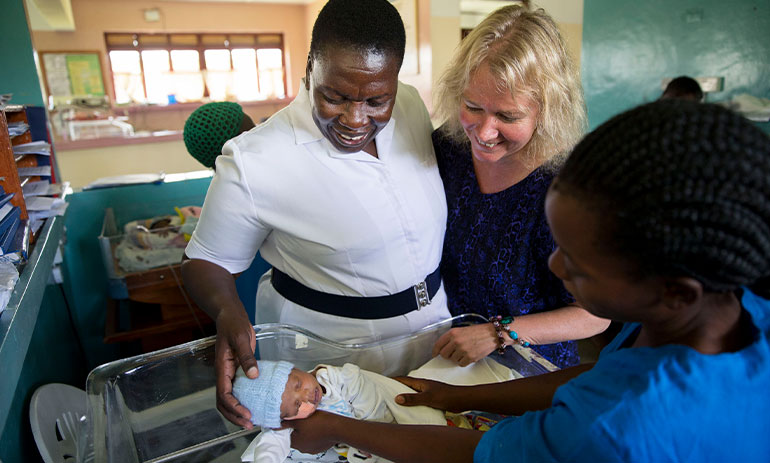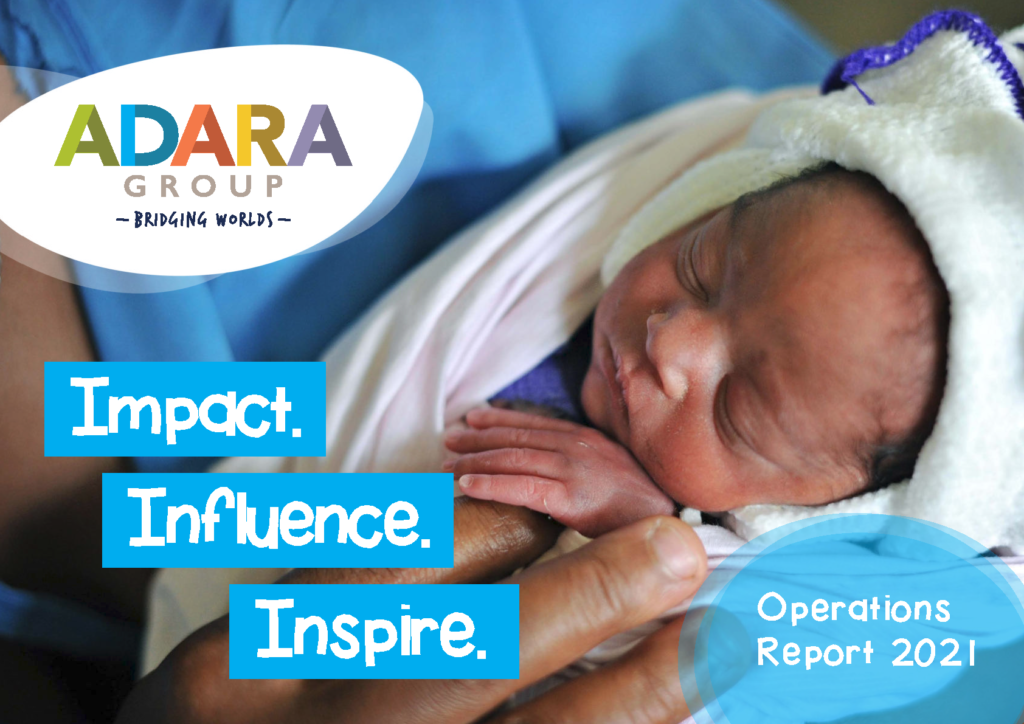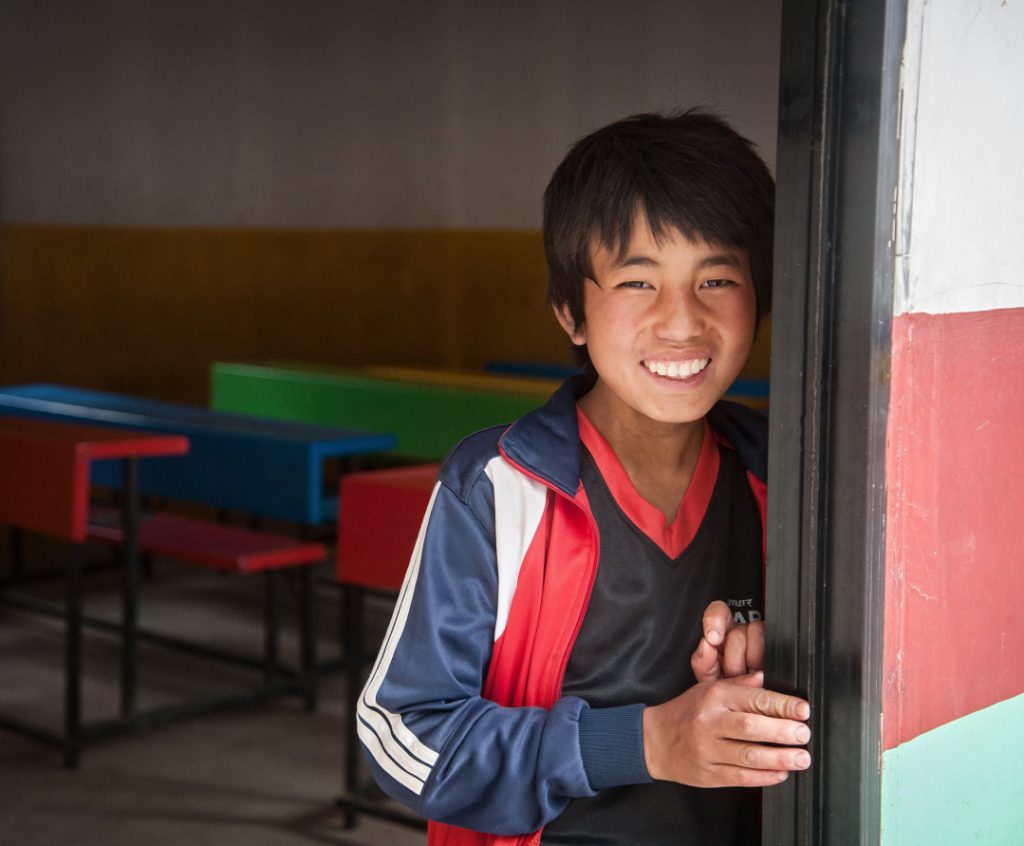Our Baby Ubuntu programme aims to improve quality of life for children at risk of disabilities and their caregivers by providing emotional and practical support, and empowering caregivers to maximise child development and health.
When Joyce was born with brain damage, it affected her vision, hearing and communication abilities. Her mother, Rebecca, was faced with an impossible choice: take Joyce for expensive further testing and medication, or watch her daughter experience regular seizures.
Rebecca’s experience is not an unfamiliar one for families in Uganda, where there are often few resources for children with a neurodisability. In communities across Uganda, there are stigmas that having a child with a disability is a curse or punishment for wrongdoing, while many others see these children as burdens. As a result, parents often feel ostracised from their community, unsupported and at times, hopeless.
“Relatives from my husband’s side say that I am cursed,” Rebecca says.
“My father in-law told my husband that this baby won’t heal and such babies end up dying”.
Despite a limited support network and few resources, Rebecca was determined to do her best to care for her child. On World Disability Day, she took Joyce to Kiwoko Hospital for an event run by organisations that support people with disabilities.
While there, she received medication to improve Joyce’s health, and was introduced to Sister Christine Otai, Adara’s Newborn National Trainer. Christine recommended that Joyce be admitted to Kiwoko’s paediatric ward and told her that Adara would support Joyce to receive the tests she needed. She also introduced Rebecca to our Baby Ubuntu programme which supports children with disabilities and their caregivers.

“The programme improves quality of life for children at risk of disabilities and empowers their caregivers to maximise child development and health”, says Samuel Semakula, Adara’s Early Intervention Coordinator overseeing our Baby Ubuntu programme.
“It’s crucial to conduct continuous awareness and sensitisation sessions to curb down social intolerance and community stigma directed at children born with developmental disabilities. These sessions are intended to build an understanding and tolerant community, while integrating these children with developmental disabilities,” Samuel says.
Baby Ubuntu is a community-based programme led by healthcare workers and expert parents that have a child with a neurodisability. After participating in the programme and seeing how it positively impacted her and baby Joyce’s life, Rebecca became an expert mother and uses her newfound knowledge to help other mothers of children with disabilities. She now leads a Baby Ubuntu group, supporting and mentoring other caregivers. Rebecca enjoys sharing her experiences with the other parents. It’s provided her with the support network she was sorely missing.
“When there is community support, then the Baby Ubuntu programme has lasting impacts on the lives of the children and society.”
Samuel Semakula, Baby Ubuntu Coordinator
In the first quarter of 2022, we have carried out sessions for mothers of children with disabilities. We have also invited religious and community leaders to help raise community-wide awareness about the different causes and types of disabilities, how to care for children with disabilities, and how the community can help these children thrive. The aim of these sessions is to stop stigma and discrimination towards these children and transform communities’ attitudes around disabilities.
Rebecca was one of eight Baby Ubuntu facilitators working in the programme in 2021. There are now 32 children participating in the programme, with four groups running across three districts.
Read more stories of joy and hope, like Rebecca and baby Joyce’s, in our 2021 Operations Report.


